Lets say I have the following regex:
Console.writeline.+(?!;)
I want to find any line that contains "console.writeline" followed by any character one or more times but does not end with a semicolon.
When I test this regex with the following string:
Console.WriteLine("Final total count of missing VMs: {0}", missingVms.Count);
It matches. However that string ends in a semicolon so shouldn't it not match?
I realize I could use [^;] but I was more curious as to why looking for a semicolon doesn't seem to work with negative lookaheads in .NET
Edit: To clarify:
Lets say I am using Visual Studio's Find and Replace tool and I want to find and comment out every instance of Console.WriteLine(...). However, I can wind up with situations where Console.WriteLine(...) goes across multiple lines like so:
Console.WriteLine("Adding drive to VM with ID: {0}. Drive HostVMID is {1}",
vm.ID, drive.HostVmId);
These can go on for 2, 3, 4, etc lines and finally end with ); to close the statement. Then I can have other lines that are immediately followed by important blocks of code:
Console.WriteLine("Creating snapshot for VM: {0} {1}", dbVm.ID, dbVm.VmName);
dbContext.Add(new RTVirtualMachineSnapshot(dbVm));
So what I want to do is come up with a regex statement that will find both the first type of instances of Console.WriteLine as well as simple single-line instances of it.
The Regex that I got from one of the answers to this question was
Console\.writeline(?>.+)(?<!;)
Which will match any line that contains Console.WriteLine but does not end with a semicolon. However I need it to continue on until it finally does reach a closing parenthesis followed by a semicolon.
Ive tried the following regex:
(Console\.writeline(?>.+)(?<!\);)
However I think thats incorrect because it still only matches the first line and doesnt capture the following lines when the writeline spans multiple lines.
At the end of the day I want to be able to capture a full Console.writeline statement regardless of how many lines it spans using Visual Studio's find and replace feature and I am a little confused on the regex I would need to use to do this.
